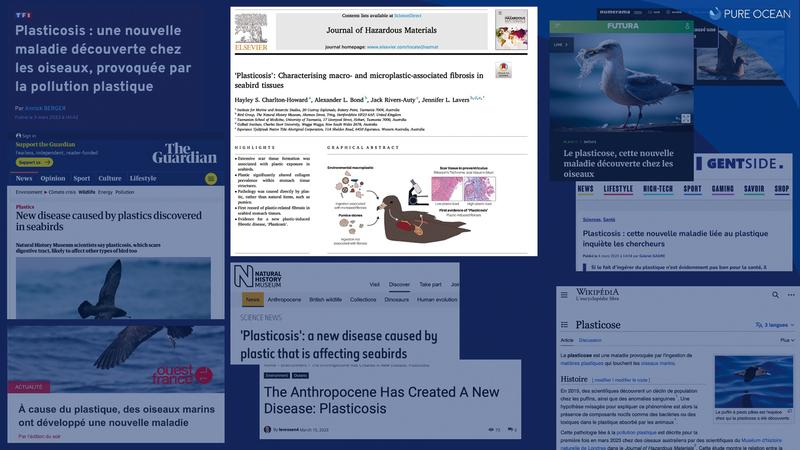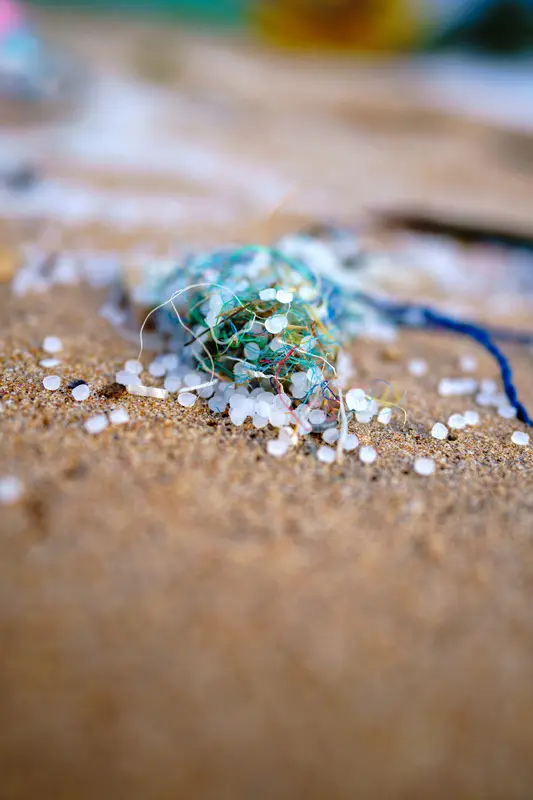
Innovative research programs to preserve the ocean
7 nouveaux projets Pure Ocean grâce à votre soutien !
La sélection 2024 est enfin terminée : la liste des 7 projets scientifiques soutenus dès 2024 est désormais officielle ! Sélectionnés pour leur excellence scientifique et leur impact, ils s’intéressent directement à :
🦑 Découvrir la diversité des espèces et de leurs interactions pour appuyer la préservation des abysses antarctiques,
🪸 Préserver les gorgones rouges de Méditerranée,
🦈 Lutter contre les prises additionnelles de cétacés et requins avec les pécheurs au Bangladesh,
🦠 Comprendre et faire comprendre le rôle de la vie planctonique dans la pompe de carbone,
🏞️ Quantifier les flux polluants de 3 estuaires au Vietnam et leurs impacts socio-écologiques,
🌿 Développer un modèle pilote d’algoculture durable au Brésil,
🩺 Comprendre l’impact des microplastiques sur le vieillissement cellulaires.
Basés sur des innovations technologiques, sociales, et inspirées de la nature, ces projets ont des champs d’actions variés et spécifiques avec un objectif commun : contribuer à mieux connaître et préserver les richesses de l’océan !
Ces projets ont été sélectionnés par un comité scientifique indépendant et international composé d’éminents scientifiques : Gilles Boeuf, Kartik Shanker, Anna Zivian et Abdelmalek FARAJ • Directeur de l’INRH (Maroc)
Merci à tous nos mécènes grâce à qui ces projets verront le jour pour l’avenir de notre océan !
Et un grand MERCI à tous les porteurs de projet ayant candidaté cette année, le choix n’a pas été facile.
Découvrez dès maintenant ces 7 projets en vidéo !
.png&w=828&q=75)
Pure Ocean call for projects: an exceptional mobilization!
The scientific projects supported by Pure Ocean are selected through an annual international call for projects. Closing on November 15, 2023, the latest call for projects attracted the exceptional mobilization of researchers around the world, with a total of 173 projects submitted, more than double the number from the previous year. This increase once again testifies to the growing need for ocean research funding.
The 4 major themes of the Pure Ocean Challenges, aligned with the United Nations' 10 Ocean Decade Challenges, were largely covered, with - of note - a very large number of innovative projects on plastic pollution. The Pure Ocean scientific committee is currently evaluating the proposals before the winners are announced on March 21, 2024.
The 4 major themes of the Pure Ocean Challenges, aligned with the United Nations' 10 Ocean Decade Challenges, were largely covered, with - of note - a very large number of innovative projects on plastic pollution. The Pure Ocean scientific committee is currently evaluating the proposals before the winners are announced on March 21, 2024.

Impressive results for the MicroPOW project, supported since 2021 by Pure Ocean
The proliferation of microplastics is a real scourge for wildlife, whether terrestrial or marine. In Australia, scientists from the MicroPow project are investigating the impact of plastic ingestion on the organs, tissues and cells of seabirds. An initial expedition to Lord Howe Island, far from civilization and human activity, led to a shocking discovery: a disease caused by plastics, plasticosis. This study shows that the accumulation of plastic particles in the birds' digestive tract causes a continuous abrasion of the animals' internal tissues. These tiny gashes never heal and deform the organs, with major repercussions on the animals' growth, reproduction and survival.
The publication of this work met with an international scientific and media echo: 193 secondary publications, 151 press articles, and 596 downloads of the full text on Twitter. And with good reason: most of the findings are applicable to human beings... The MicroPOW team is now back on the island! The aim of this second expedition is to analyze the chemical compounds involved, and their biological markers, to detect signs of plasticosis in birds as early as possible.
The scientific article: https://www.sciencedirect.com/science/article/pii/S0304389423003722?via%3Dihub

The Plastidrugs project, selected by Pure Ocean's scientific committee and financed in part by funds raised by Captain Cause
For better or worse, plastic materials have now completely invaded our societies. With no thought given to rationalizing their use and end-of-life, nearly 300 million tonnes of plastic waste are produced every year by human societies. Released into the environment, they break down into innumerable particles, which exchange pollutants with the medium through which they pass: plastic additives can be released into the environment, while other pollutants can, conversely, load up on the surface of microplastics, forming pollutant "rafts". These end up accumulating in the organisms that consume them, and notably in the end, us human beings!
One of the six winning projects from the latest Pure Ocean call for projects, Plastidrugs, will characterize the presence of major pollutants (endocrine disruptors and antibiotics) and emerging ones (additives and synthetic drugs) both in seawater, but also specifically on plastic particles. This study will be carried out comparatively in the Bay of Brest, where these pollutants have been identified, and in the Bay of Santos (Brazil), where wastewater treatment infrastructures are deficient. The team will draw up recommendations for curbing plastic pollution and its indirect chemical effects on humans and biodiversity.

MicroPow research project funded & 114,000 liters of waste collected
We were able to fund the MicroPow research project, the aim of which is to understand the impact of micro-plastics on the health of wildlife. This project determines the impact of micro-plastic ingestion on the organs, tissues and cells of seabirds on Lord Howe Island, Australia. Thanks to the funds raised, we were able to finance the researchers' 2nd expedition to the island, enabling them to sample 80 birds for tissue analysis. An international scientific publication came out of this, showing that plastic particles create inflammation, fibrosis and functional degradation of the birds' digestive organs and kidneys. These results, which can be extrapolated to human health, will be shared with political decision-makers.
In 2022, the La Goutte Bleue movement mobilized 3800 people (corporate employees, citizens & citizens) who took part in litter picks, at 95 sites all over France, with a collection result of 114,000 liters of waste, so much waste that won't go to pollute the ocean. Objective 2023: with La Goutte Bleue kits, mobilize 30,000 citizens across France for litter pick-ups and reach a target of 200,000 liters of waste collected before it pollutes the ocean or rivers.
Pure Ocean's Scientific Committee is currently reviewing the 71 innovative research projects from 27 countries that applied to its 2023 international call for projects. The five winning projects will be announced on March 21, 2023. One of these projects will focus on plastic pollution, and will be funded by funds raised by Captain Cause.
In 2022, the La Goutte Bleue movement mobilized 3800 people (corporate employees, citizens & citizens) who took part in litter picks, at 95 sites all over France, with a collection result of 114,000 liters of waste, so much waste that won't go to pollute the ocean. Objective 2023: with La Goutte Bleue kits, mobilize 30,000 citizens across France for litter pick-ups and reach a target of 200,000 liters of waste collected before it pollutes the ocean or rivers.
Pure Ocean's Scientific Committee is currently reviewing the 71 innovative research projects from 27 countries that applied to its 2023 international call for projects. The five winning projects will be announced on March 21, 2023. One of these projects will focus on plastic pollution, and will be funded by funds raised by Captain Cause.
Align customer loyalty and solidarity.
Let's start!

